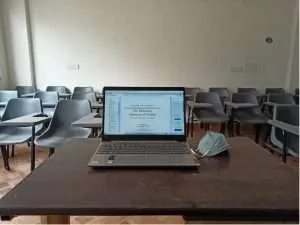The Sociology of Teaching and Problems Facing Nigeria’s Teachers
Have you ever reflected to ask what made Socrates, Plato and Aristotle so popular that they are yet to be forgotten hundreds of years after their departure? The answer is not far-fetched, they were teachers. They upheld philosophical teachings and pass it on to their disciples who pass it on from generation to generation. This generates a platform for social scientists to analyze the sociology of teaching.
Sociologically, teaching is one of the oldest and most reputable professions in the world. It can be traced back as far as the fourth to fifth centuries when they were regarded as sophists. A sophist was regarded as a teacher in ancient Greece in the fourth to fifth BC. They specialized in one or more subject areas, such as philosophy, rhetoric, music, athletics, and mathematics. They also taught “virtue” or “excellence” predominantly to young statesmen and nobility. The early educators were seen as the architects of knowledge and were people of honour. They were the only people who can scold the wards of statesmen and nobles without any repercussion.
However, the view of this noble profession in Nigeria has changed. For most teachers, the teaching profession is not considered as a permanent job but a tentative one to get better employment.
An observatory study of the society reveals that teachers, especially, in private establishments are regarded as the needy that cannot climb the social ladder. Many people see it as a blemish to be called a teacher; many teachers in training were admitted into the profession accidentally.
Using Sociology
As a sociologist, I have studied social events, interactions, and patterns, and I have developed an assumption in an attempt to explain why things work as they do. I.e. What happened to the profession?
Historically, the teaching profession in Nigeria was designed to give values and respect to teachers, not to acquire wealth. In the olden days, the teachers were paid less but they were regarded as important and inextricable members of the society. The teachers were made to believe that no amount of money can be equated to their sacrifices; hence, their rewards are in heaven.
This societal notion was upheld throughout the missionary era in the country. As the world changed from the dignity of human respect to the money-driven world, the teachers’ payments were not upgraded and the respects diminishes gradually to the point of no return.
From a sociologist perspective, I believe that no society can rise above the qualities of their teachers. In Japan, despite the grave effects of the Second World War that nearly turned the country to a third world country. They are back on track as a country with the Highest Technological Expertise in the world, followed by China, South Korea and the United States (According to usnews.com). A relative look at this shows that Japan had invested greatly in their teachers compared to Nigeria whose teachers are part of the people with the lowest salaries.
Hence, the above problems in the country had mandatorily stratified teaching profession for low intelligent students since the payment and the social status are demoralising. The highly intelligent students prefer to go for courses like law, medicine, pharmacy, etc. because of the social status and the remunerations that are attached to them. Even educational institutions that are supposed to guard the dignity of the teaching profession have demoralised it and make it available to every Tom, Dick, and Harry. Little wonder the universities in the country had set the lowest cognitive cutoff marks for educational courses in schools. Not only that, people who are regarded as unfit for some courses are usually pushed into the teaching line since it is believed that everybody can teach.
Solutions
To solve the problem, the status of the profession needs to be standardized. The profession needs to be stratified among the upper-class profession, a competitive one. It can be done by making it look more enticing for highly intelligent individuals. The educational institutions need to stop dashing out the professional courses to every Tom, Dick and Harry but to people who had shown zeal and interest by choosing the courses.
Also, the government needs to restructure the salary scale of teachers. The societal notion that rewards of teachers are in heaven should be abolished. The society is unjust to the teaching profession. They believed that teaching is a noble profession and teachers are highly educated, yet they receive very low payments. The society believes that teachers should do their job for the love of the profession and the betterment of their students but never for money. A kind of ideology that is unacceptable in other walks of life. Teachers are human beings, not angels and they are part of the competitive society. They are the roots that can either make or break the economic and technological barriers of the country.
Lastly, one can opine that the country, Nigeria, is yet to take a giant stride in competing with the world economically and technologically as a result of the quality of the teachers which had little or no influence on the learners. If the teachers are motivated to do their best, it will go a long way to produce innovative learners which will be a great step to accomplishing greatness.








